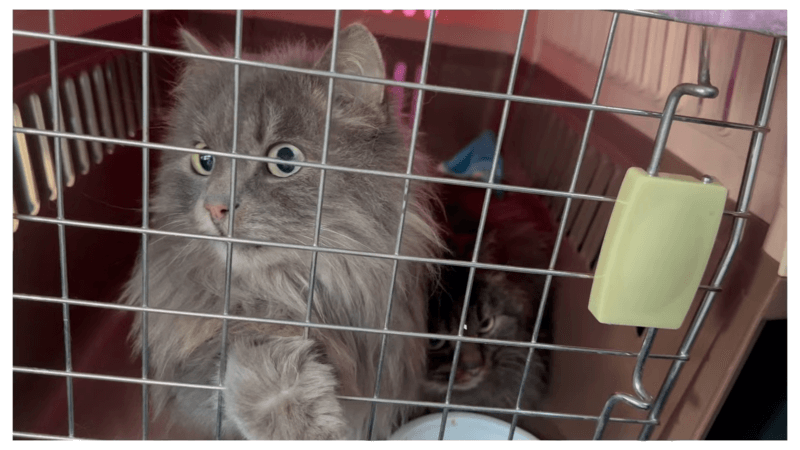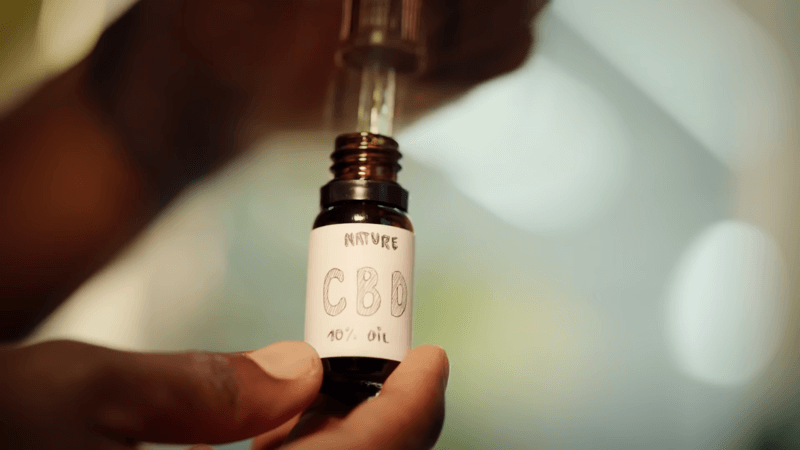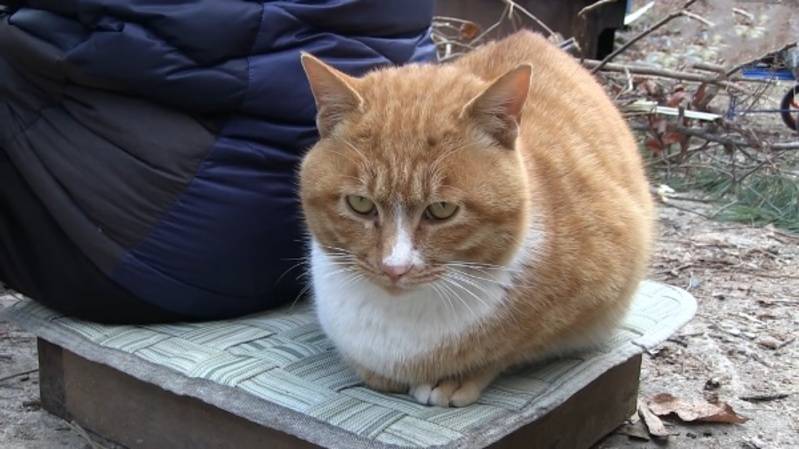No products in the cart.
In the world of feline health, the question “Can CBD get rid of tumors in cats?” arises among pet lovers, sparking both curiosity and concern. Understanding the types of tumors that can affect our feline friends and how they can impact their health is paramount.
In this blog, we’ll delve into the diverse appearances of feline tumors, their effects on a cat’s well-being, the potential role of CBD in tumor management, and the critical considerations surrounding its use.
What Does a Tumor Look Like on a Cat?
Tumors in cats can take on different appearances, and how they look depends on the type of tumor and where it’s located. Here’s what you might notice:
- Lumps or Masses: One of the most common signs is a lump or bump either on the surface of the skin or hidden underneath. These lumps can vary in size, so they might be tiny or quite noticeable. When you touch them, they can feel either firm, like a hard marble, or soft, like pressing on a cushion.
- Skin Changes: Some tumors show up on the skin and might look raised, like a little mountain on your cat’s body. They can also look ulcerated, which means they have an open sore or wound. Sometimes, they might have odd colors or textures. In some cases, these tumors can cause your cat to lose their fur or have weird changes in how their fur grows.
- Swelling: Some tumors hang out inside your cat’s body and you can’t see them from the outside. But even though you can’t spot them, they can still make a difference. They might cause your cat’s belly to puff up or look kind of swollen like they’ve had a big meal.
- Changes in Behavior: Tumors can affect your cat on the inside, too. Cats with these hidden tumors might act differently. They might seem tired all the time, lose interest in their food, or even use the litter box in a strange way.
- Pain and Discomfort: Tumors can be uncomfortable or downright painful for your cat. They might let you know by meowing more, not being able to sit still, or avoiding being touched in certain spots. Just like when you’re not feeling well, they might act a bit cranky or grumpy.

Types of Tumors in Cats
There are various types of tumors that can affect cats. Some of the common ones include:
- Skin Tumors: Think of these as growths on the outside of your cat’s body. Some are harmless, like little fatty lumps that don’t bother your cat much. But others can be more concerning, like squamous cell carcinoma or melanoma. These are types of skin cancer.
- Mammary Tumors: These are lumps that pop up in your cat’s mammary glands, which are the glands that produce milk. They’re more common in female cats that haven’t been spayed. Sometimes these lumps can be benign, but they can also be cancerous.
- Gastrointestinal Tumors: These tumors hang out in your cat’s stomach, intestines, or other parts of their digestive system. They can cause trouble with how your cat digests food and absorbs nutrients.
- Bone Tumors: These are rare, but cats can get tumors in their bones, just like people can. Osteosarcoma is one example. It’s a type of bone cancer that can be tough to deal with.
- Lymphoma: Lymphoma is a kind of cancer that often involves the lymph nodes. Those are little spots in your cat’s body that help with their immune system. Lymphoma can show up in various parts of your cat’s body, making it tricky to spot.
- Hemangiosarcoma: This is a cancer that messes with your cat’s blood vessels. It can show up on their skin or hide inside their body. It’s a bit like a silent troublemaker.
How Tumors Can Affect a Cat’s Health
Tumors can have a significant impact on a cat’s health in several ways:
- Local Effects: If there’s a tumor in your cat’s stomach, it can make it hard for them to digest food properly. Or if it’s in their lungs, it can mess with their breathing. So, tumors near important organs or tissues can cause problems right where they’re located.
- Systemic Effects: Some tumors are like troublemakers that send out signals to the entire body. They can release hormones or other substances that affect the whole body. This can lead to symptoms like weight loss, where your cat seems to be getting skinnier, or they might feel weaker. It can even change how they behave, like making them less playful or social.
- Pain and Discomfort: Tumors can be painful and uncomfortable for your cat. They might meow more or not want to be touched in certain areas. This discomfort can change how they go about their daily lives and play.
- Complications: Sometimes, tumors can cause extra problems. It’s like a chain reaction. For example, if a tumor bleeds, it can lead to other issues like infections or problems with how certain organs work. The type and location of the tumor determine what kind of complications might pop up.
Physical Examination
When your furry friend isn’t feeling their best, a visit to the vet is essential. During this check-up, your veterinarian will do several things to help spot potential tumors:
- Feeling for Lumps: The vet will gently touch and feel your cat’s body, looking for any strange bumps or growths. They’ll note the size, texture, and where they find them.
- Checking Lymph Nodes: Sometimes, swollen or unusual lymph nodes can signal underlying problems, including cancer.
- Listening to the Heart and Lungs: This is like getting your cat’s “engine” checked. It helps the vet assess overall health and catch anything unusual that might be connected to certain tumors.
- Abdominal Exam: Your vet might press gently on your cat’s tummy to check for lumps or if any organs seem larger than they should be.
- Assessing General Condition: The vet will take a good look at your cat’s behavior and any other symptoms they might be showing.
Can CBD Get Rid of Tumors in Cats?
You may have heard about CBD and its potential health benefits. But when it comes to using CBD to get rid of tumors in cats, we’re in a bit of a gray area. While there’s some early research suggesting that compounds like CBD might have anti-cancer properties in lab experiments, that doesn’t mean they work the same way in real-life situations.
Cancer is incredibly complex, with many different types and stages. To tackle it, we usually rely on well-established treatments like surgery, chemotherapy, radiation therapy, and specialized therapies. These treatments are designed to fit the specific type and stage of cancer a cat has. Using CBD all by itself as the main way to get rid of tumors isn’t recommended because it hasn’t been proven to work that way.

CBD for Felines
When people talk about “CBD for felines” or “CBD for cats,” they mean using CBD products made just for our furry companions. CBD is a natural compound found in the cannabis plant, and it’s been getting attention for its potential health perks. CBD products for cats are made with our little friends in mind, with the right dosages and forms to help with various health issues. Visit the Pet CBD Club for even more wonderful CBD pet products.
Potential Benefits of CBD for Cats
In addition to its potential use in cancer care, CBD may offer benefits for cats in various health-related areas. Some potential benefits of CBD for cats include:
- Anxiety and Stress Relief: Just like us, cats can get anxious or stressed out. CBD could help ease their worry and calm them down.
- Pain Management: Sometimes, our furry friends deal with pain from conditions like arthritis or other health issues. CBD can be like a comfy cushion for them, helping to ease that chronic pain and discomfort.
- Anti-Inflammatory Powers: When your cat’s body gets all swollen and sore, CBD’s anti-inflammatory superpower might come to the rescue. It’s like a gentle breeze that cools down inflammation, which can be really helpful if your cat has something like arthritis or tummy troubles.
- Epilepsy Control: If your cat has epilepsy and those sudden seizures, CBD has shown some promise in helping keep them under control. It’s like a superhero’s shield against those unwanted surprises.
- Skin Support: Sometimes, our kitties can have itchy or allergy-riddled skin. CBD might be like a soothing lotion for them, helping with those skin woes and making them feel more comfortable.
Safety of Using CBD for Cats
The safety of using CBD for cats is a crucial consideration. Here are some important points regarding the safety of CBD for cats:
- Talk to the Vet: Imagine your vet as your trusted advisor. Before you start giving your cat CBD, have a heart-to-heart with them. You want a vet who knows their stuff about CBD and pets. They’ll help you figure out the right dose and keep an eye on how your cat is doing.
- Choose Wisely: Not all CBD products are equal. You want the good stuff that’s made just for pets. Look for brands you can trust, and check if they’ve got those lab test results to prove their product is pure and strong.
- Start Slow and Low: Begin with a small dose of CBD, then watch your cat closely. If everything seems good, you can tweak the dose if needed.
- Watch for Weirdness: While CBD is usually safe, some cats might react to things like getting sleepy, having upset tummies, or playing with their food. If you spot any unusual behavior, stop the CBD and get in touch with your vet.
- Know the Laws: CBD rules can be a bit like a maze, and they can change depending on where you live. So, make sure you’re not breaking any laws when you’re giving CBD to your cat.
- Say No to THC: Remember, THC is a no-no for cats. It’s the part of cannabis that can make everyone a little loopy. Keep your cats CBD-free from this stuff.
Can CBD Oil Shrink Tumors in Cats?
When it comes to the use of CBD oil for tumors in cats, it’s important to be aware that CBD is typically considered a complementary or supportive therapy. It is not a primary treatment for eliminating tumors. The primary treatment for tumors in cats usually involves established medical approaches such as surgery, chemotherapy, radiation therapy, or other targeted treatments. CBD may be considered as part of a holistic approach to managing symptoms and side effects associated with cancer, rather than as a direct tumor-shrinking agent.

Factors Influencing the Effectiveness of CBD on Tumor
Several factors can influence the potential effectiveness of CBD in managing tumor size in cats:
- Tumor Type: Not all tumors are the same, and some might respond better to treatment than others, including CBD. It’s like different locks needing different keys.
- Tumor Stage: The earlier you find the tumor, the better your chances of dealing with it. So, the size and extent of the tumor can affect how well cat CBD oil works.
- Dosage: Finding the right amount of CBD for your cat is like measuring ingredients for a recipe. It can depend on how big your cat is and what’s going on with them health-wise. Too much or too little can throw things off.
- Duration of Treatment: Consistency is key here. Imagine taking medicine for a headache. If you only take it once and not again when you need to, it might not work as well. The same goes for CBD. It needs to be given regularly to have the best chance of helping.
- Complementary Treatments: Sometimes, CBD teams up with other treatments, like surgery or chemo, to tackle the problem. It’s like having a superhero squad. Combining treatments can change the outcome.
- Individual Differences: Cats are like people; each one is unique. They might respond differently to CBD based on things like their genetics, overall health, and how strong their immune system is. It’s a bit like how some people get over a cold faster than others.
Legal Considerations Regarding the Use of CBD
The legal status of using CBD for cat tumors varies depending on where you live. In many regions, CBD derived from industrial hemp with low THC content is legal for use in cats, but local restrictions or regulations may apply. It’s crucial to research and understand your area’s specific laws and consult with your veterinarian to ensure you’re in compliance while considering CBD as a potential option for your cat’s tumor.
Conclusion
Can CBD get rid of tumors in cats? This question underscores the complexity of managing feline tumors. While CBD may offer potential benefits for various aspects of a cat’s health, including anxiety relief and pain management, it should not be considered a primary treatment for eliminating tumors in cats. CBD may have a role in supporting overall well-being and managing symptoms, but its effectiveness in shrinking tumors remains a subject of ongoing research and discussion.
I am Nelson Cooper, I pursue my passion for writing and my belief is that cats love humans. I enjoy traveling and have a deep appreciation for the beauty of nature, as well as a soft spot for animals, particularly cats.



